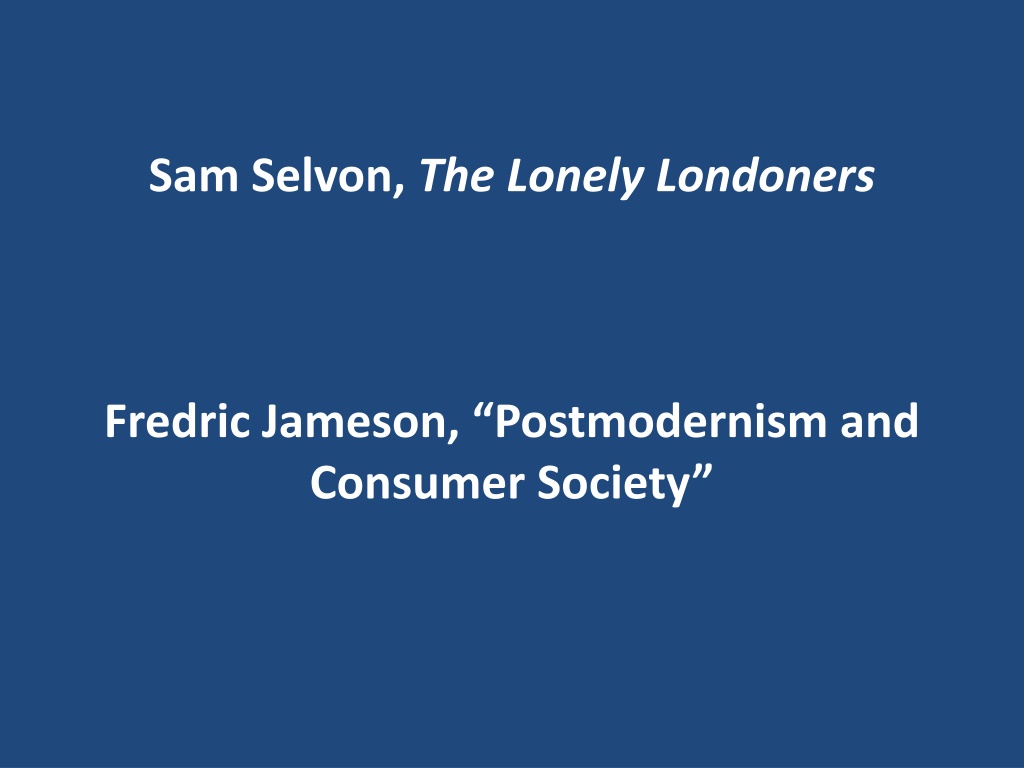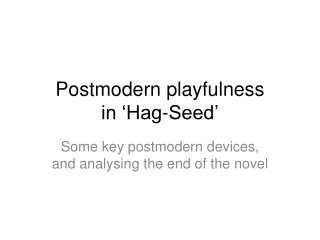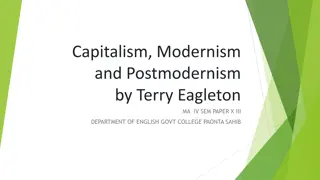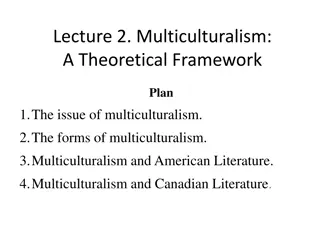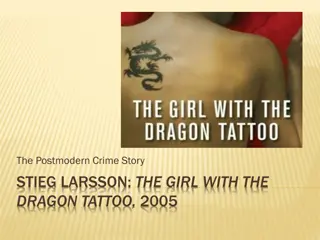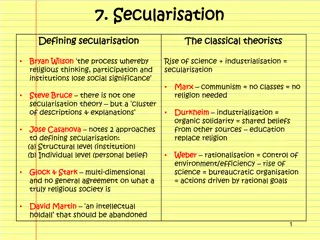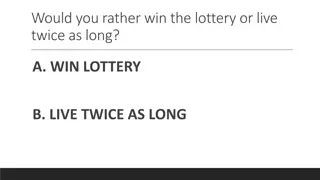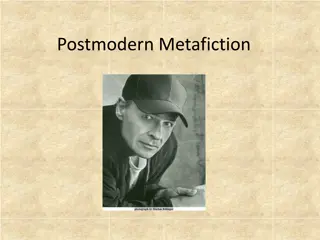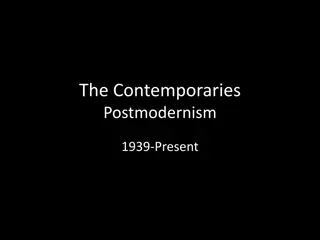Postmodern Perspectives on London Society and Literature
Explore the intersection of postmodernism, consumer society, and the social fabric of London through the lens of works by Sam Selvon and Fredric Jameson. Delve into the complexities of modernization, media influence, and the fragmentation of society in London as portrayed in "The Lonely Londoners" and Jameson's insights on postmodern cultural shifts. Reflect on how postmodern art interacts with and potentially resists the logic of consumer capitalism while pondering the societal divisions and disconnectedness prevalent in a multi-faceted city like London.
Download Presentation

Please find below an Image/Link to download the presentation.
The content on the website is provided AS IS for your information and personal use only. It may not be sold, licensed, or shared on other websites without obtaining consent from the author. Download presentation by click this link. If you encounter any issues during the download, it is possible that the publisher has removed the file from their server.
E N D
Presentation Transcript
Sam Selvon, The Lonely Londoners Fredric Jameson, Postmodernism and Consumer Society
Literary form as a container of social relations, or tensions Form as the abstract of specific social relationships
Jameson: postmodernism as a periodizing concept whose function is to correlate the emergence of new formal features in culture with the emergence of a new type of social life and a new economic order (544).
is often euphemistically called modernization, postindustrial or consumer society, the society of the media or the spectacle, or multinational capitalism. This new moment of capitalism can be dated from the post-war boom in the United States in the late 1940s and early 50s [. . .]. The 1960s are in many ways the key transitional period, a period in which the new international order [. . .] is at one and the same time set in place and is swept and shaken by its own internal contradictions and by external resistance. (544)
My own conclusion here must take the form of a question about the critical value of the newer art. There is some agreement that the older modernism functioned against its society in ways which are variously described as critical, negative, contestatory, subversive, oppositional and the like. Can anything of the sort be affirmed about postmodernism and its social moment? We have seen that there is a way in which postmodernism replicates or reproduces reinforces the logic of consumer capitalism; the more significant question is whether there is also a way in which it resists that logic. But that is a question we must leave open.
It have people living in London who dont know what happening in the room next to them, far more the street, or how other people living. London is a place like that. It divide up in little worlds, and you stay in the world you belong to and you don t know anything about what happening in the other ones except what you read in the paper (74).
Jameson: the penetration of advertising, television and the media generally to a hitherto unparalleled degree throughout society (553). Selvon: Always, from the first time he went there to see Eros and the lights, that circus have a magnet for him [. . .]. Every time he go there, he have the same feeling like when he see it the first night, drink coca-cola, any time is guinness time, bovril and the fireworks, a million flashing lights, gay laughter, the wide doors of theatres, the huge posters, everready batteries [. . .]. (90)
I been here ten years now, and it aint have a part that I don t know. When them English people tell strangers they don t know where so and so is, I always know. From Pentonvilla right up to Musket Hill, all about by Claphand Common. I bet you can t call a name in London that I don t know where it is (101).
Well Tanty used to shop in this grocery every Saturday morning. It does be like a jam- session there when all the spade housewives go to buy, and Tanty in the lead. They getting on just as if they in the market-place back home. [. . .] [Tanty] become a familiar figure to everybody, and even the English people calling she Tanty. It was Tanty who cause the shopkeeper to give people credit (78)
One grim winter evening, when it had a kind of unrealness about London, with a fog sleeping restlessly over the city and the lights showing in the blur as if is not London at all but some strange place on another planet, Moses Aloetta hop on a number 46 bus at the corner of Chepstow Road and Westbourne Grove to go to Waterloo to meet a fellar who was coming from Trinidad on the boat-train. (23) Unreal City, Under the brown fog of a winter dawn, A crowd flowed over London Bridge, so many, I had not thought death had undone so many. Sighs, short and infrequent, were exhaled, And each man fixed his eyes before his feet. Flowed up the hill and down King William Street, To where Saint Mary Woolnoth kept the hours With a dead sound on the final stroke of nine. T.S. Eliot, The Wasteland
